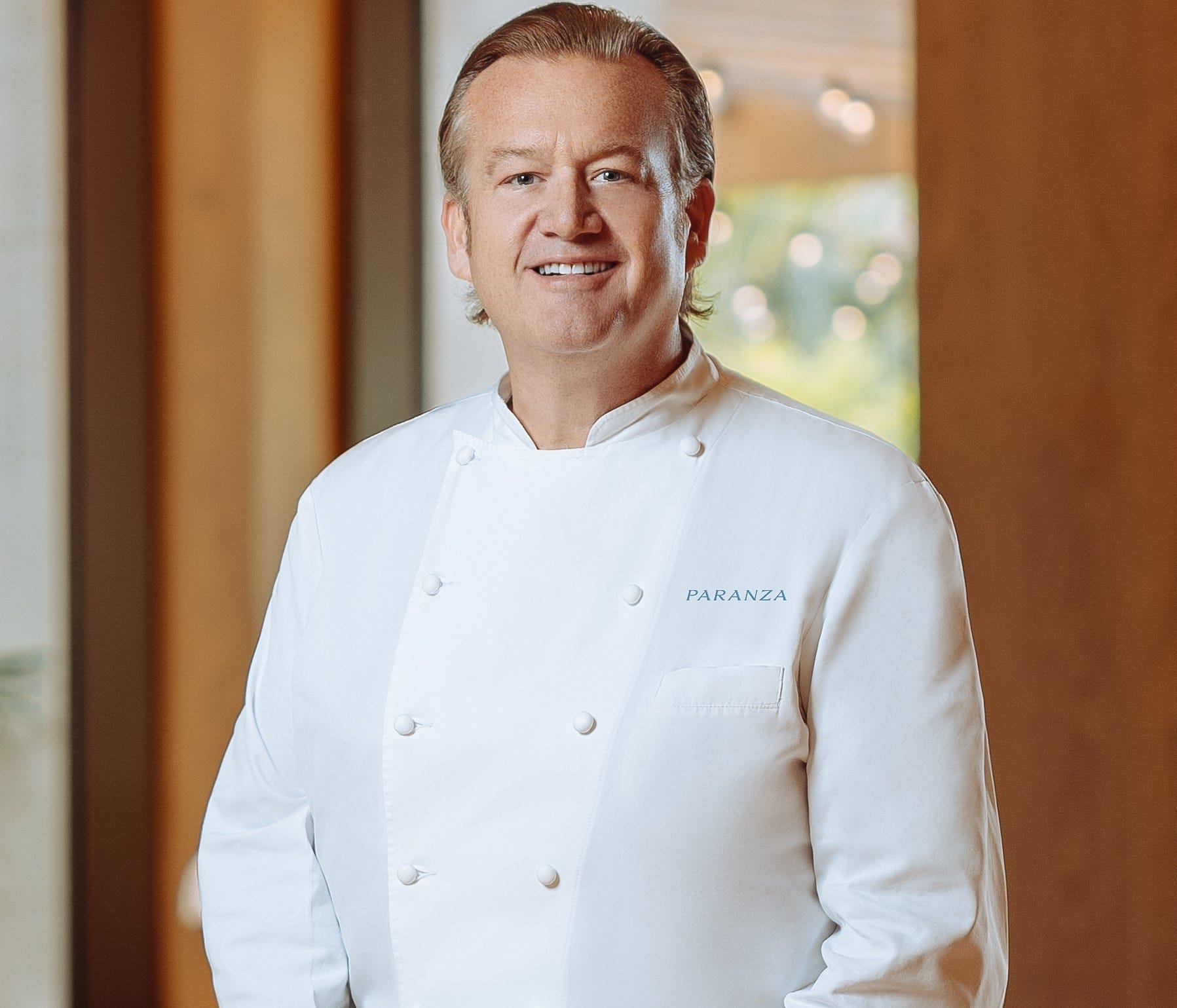Michael White in Paradise
The chef opens Paranza at Atlantis Paradise Island in the Bahamas right after announcing a new Manhattan restaurant in the works
Chef Michael White has an impressive list of accomplishments. His past New York restaurants Marea, Ai Fiori, Osteria Morini, and Vaucluse were the epitome of fine dining, with the restaurants earning Michelin stars.
The chef, who released plans for a new restaurant in Manhattan, recently opened Paranza in Atlantis Paradise Island in the Bahamas. White joins notable chefs and Jose Andres (Fish), Alon Shaya (Silan), and Nobu Matsuhisa (Nobu) at the juggernaut of a resort, making it a destination for fine dining in a tropical setting.
Paranza taps into White’s love of Italian fare with inspiration from the gorgeous waters and rich culture of the Bahamas. The chef sources strawberry grouper and conch harvested daily from just offshore, along with locally grown herbs and greens for his dishes.
Broken Palate spoke with White about the restaurant and what draws him to the Bahamas.
Broken Palate: How did Paranza at Atlantis Paradise Island come about? How did you make the decision to open a restaurant in the Bahamas?
Michael White: The New York/Long Island east coast corridor is very much the Atlantis demographic and the resort was in need of an Italian seafood concept. It was an easy fit and I’m excited to be here.
BP: Can you share how being in the Bahamas inspires the food at Paranza?
MW: The conch here is just amazing. We’re talking about Mr. Brown, the fisherman harvesting them just that day. I asked him if there was ever a conch shortage and he told me, “Chef, there are thousands on the ocean floor”. There are also sea urchins and strawberry grouper. Fishermen spear them in the morning and I get a bucket of them in the afternoon. They’re so fresh, I let them hang for a day. The scungilli (conch) has made it into the crudo section, and we have a spicy linguini with grouper on the menu.
On the other hand, we’re also able to get the same products that we use in New York here. So we use the same Italian flours to do the pastas. That allows us to reproduce an Italian coastal experience with nuances from the Caribbean.
BP: Atlantis has quite the culinary star power with Jose Andres, Nobu Matsuhisa, Alon Shaya, and yourself. How important is it for destinations to have a robust culinary program?
MW: People have a choice. If you’re not food-savvy, you’re going to be super surprised with the offerings. If you are a food traveler, that’s why you go to certain places. When I look at a place to visit, I ask, ‘Are we going to eat okay’? That’s not to say it needs to be high-end — it just needs to be good and honest.
BP: How often are you in the Bahamas?
MW: I’m there about four days every month. I’ll be there the week after next for Atlantis’ anniversary, in fact. If I put my name on something, I really want to nurture it and make sure the team is on point and fired up. Restaurants are very much an evolution all the time. They’re not something that stays static.
BP: How do you stay in touch with your team when you’re not there?
MW: With Facetime and WhatsApp, I can see everything right now. The chefs will show me a new ravioli like I’m there with them.
BP: That’s interesting. I never thought of technology helping in the kitchen.
MW: It also helps with getting product. Purveyors will post on social media that they just got 250 pounds of something rare and I can grab it. It’s of the moment. Our jobs have become easier because of all this technology.
Because of WhatsApp, I already know that I have 248 on the books tonight. I know what VIPs will be dining. My teams are in constant contact. It’s a full-court press.
Then, what’s really cool, is that the next day, I can look at what the people ate. What was the number one item? And that helps us order — especially on an island.
BP: But, of course, with all the technology, it takes a chef to make food with soul.
MW: My grandfather owned a gas station. He always said, “There’s more to it than pumping gas”.


